Alabama Scouts Tackle Whitewater in Inflatable Kayaks
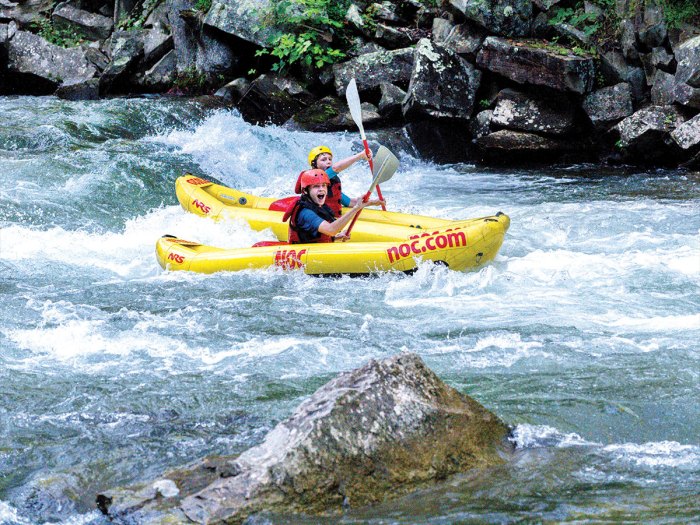
Thomas Moak, front, and John Philipp steer their duckies through a Class III rapid.
Go whitewater rafting, and you and your friends will likely hop into a large inflatable raft. These vessels provide a smooth ride over fast-moving water, plus the elasticity to bounce off half-submerged rocks. Rocks might do more damage to a hard-shell kayak, but the smaller kayak would be easier to maneuver in the rapids.
What if you were able to combine the two? Like an inflatable kayak?
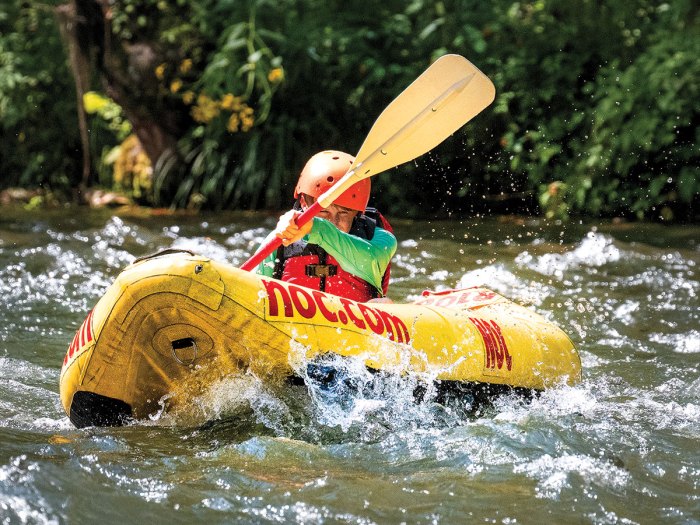
Everett Baxley paddles through the waves along the Nantahala River.
They exist. They’re called “duckies,” and Scouts in Troop 53 of Mountain Brook, Alabama, got to try them out as they headed down North Carolina’s Nantahala River last August.
“If we were whitewater rafting, the rafting is super-stable, and you can plow through all the rapids, but in a ducky, you get the safety of a raft with all the fun of a kayak,” says Robert White, a 13-year-old Life Scout.
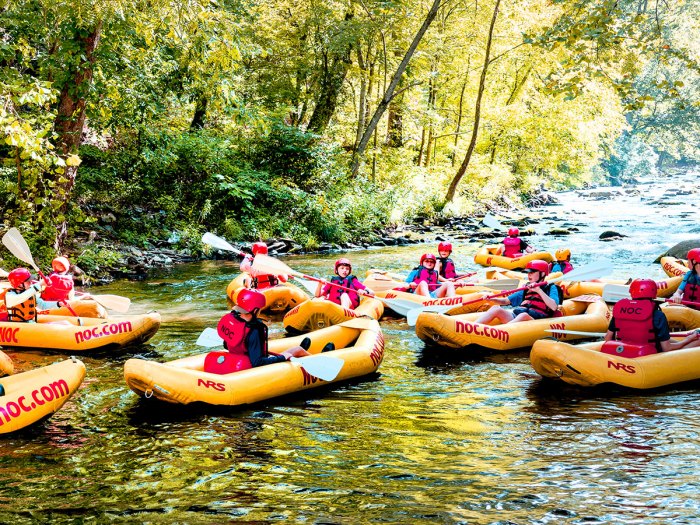
WHITEWATER EXPERTS
Paddling whitewater is one of Troop 53’s favorite activities, but for some of the Scouts, this trip would be their first time. Such an action-packed adventure requires professionally trained guides. You don’t want to tackle this activity without some expertise. That’s why Troop 53 goes to the Nantahala Outdoor Center near Bryson City, N.C. This outfitter knows the river and provides gear and guidance.
“If you follow what the instructors do, you’ll do pretty well,” Robert says.
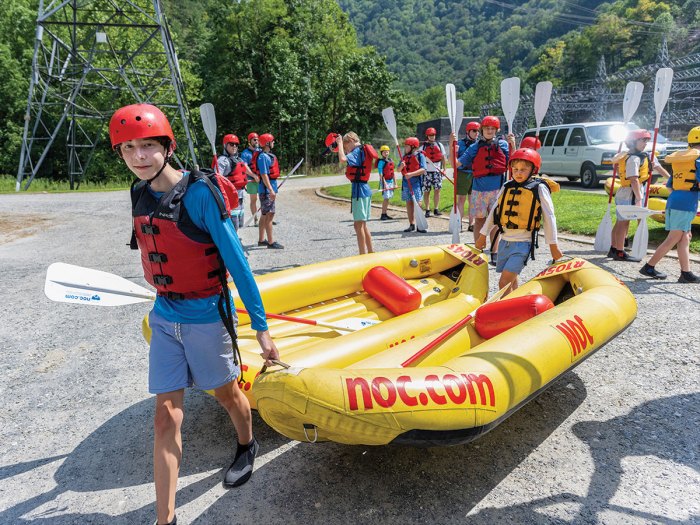
Bryson Dobbins (left) and Jack Rogers carry duckies to the river.
Before the Scouts could take their duckies to the river, they reviewed safety guidelines — like what to do in case they fell out — and got fitted for helmets and lifejackets. If you’re navigating rapids rated Class II and above, you need to wear a whitewater-rated helmet. This class of rapids features waves up to 3 feet tall and visible obstacles — still fairly easy on a six-tier scale.
Steering a ducky through the Nantahala River’s Class II rapids would be a fun challenge and definitely doable, no matter everyone’s experience.
“It felt like it was an extension of your body,” says Life Scout Thomas Moak, 14. “It’s not as maneuverable as a kayak, but it was more comfortable.”
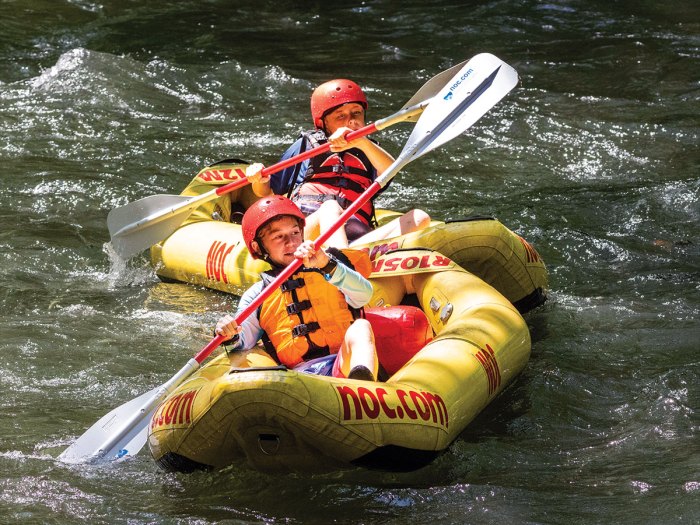
Charlie Long (front) and Jack Donald paddle their duckies.
PADDLE POWER
The guys soon saw the advantages to paddling a ducky. Since they’re inflatable, they can bounce off rocks and bend under stress without flipping. Most of the group stayed upright, though they still got wet.
“They have holes between the two tubes between the air pockets,” Robert says. “If there was water in the ducky, it could flow out super easy. But in rapids, water came up through them and splashed in your face.”
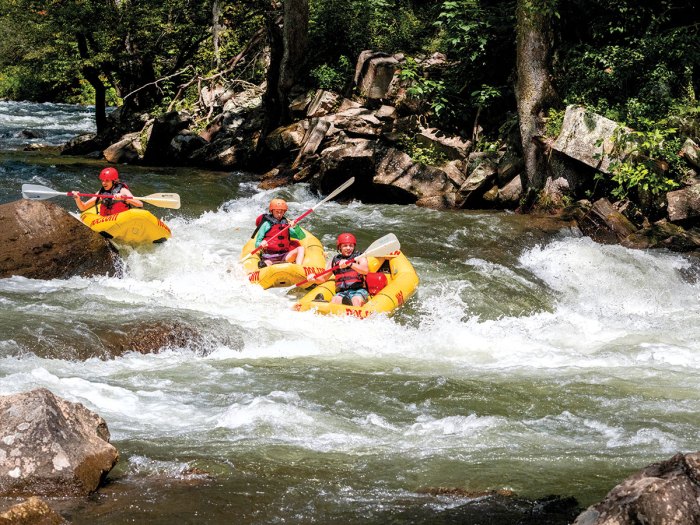
From left: Robert White, Everett Baxley and Harrison Baxley navigate cascading rapids and avoid trouble spots.
With an outfitter guide showing them the way, the troop navigated the rapids. The river flowed consistently, but there were pockets where the Scouts could briefly hop out and enjoy the refreshingly chilly water.
The 8-mile trip lasted for 2 hours, though it didn’t feel that long.
“I was surprised how fast it went,” says William Morgan, 13, a Second Class Scout. “I could’ve stayed out for another four hours.”
“I was sad when it was over,” Thomas says.
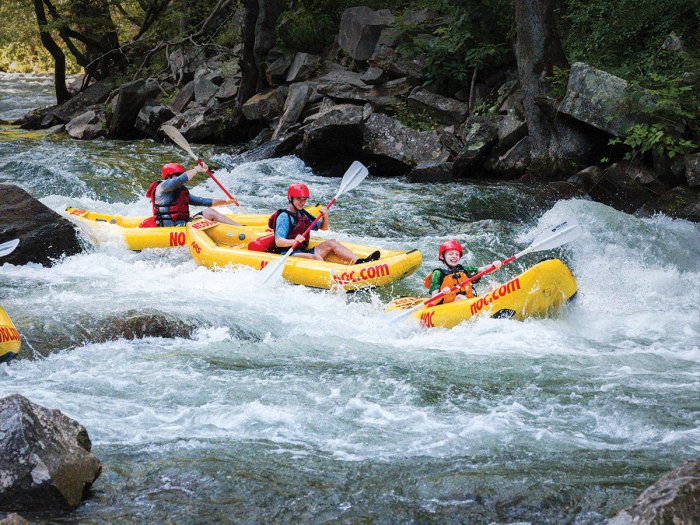
Scouts paddle through the rapids. Whitewater rapids are classified from
Class I through Class VI; Scouts are not allowed to go through any rapids higher than Class IV.
LESSONS LEARNED
Not all the fun happened on the water. The troop stayed at Woodruff Scout Camp, an Atlanta Area Council camp about an hour-long drive from the Nantahala Outdoor Center.
There, the guys climbed and rappelled on the camp’s 50-foot climbing tower for a couple of hours. To rappel, you lean backward off the side of the tower and lower yourself down the rope all the way to the ground. It can be intimidating.
“It’s like you have to sit in an invisible chair,” Thomas says. “But that didn’t really help me much.”
Still, facing a fear is putting the Scout Law into action. A Scout is brave.
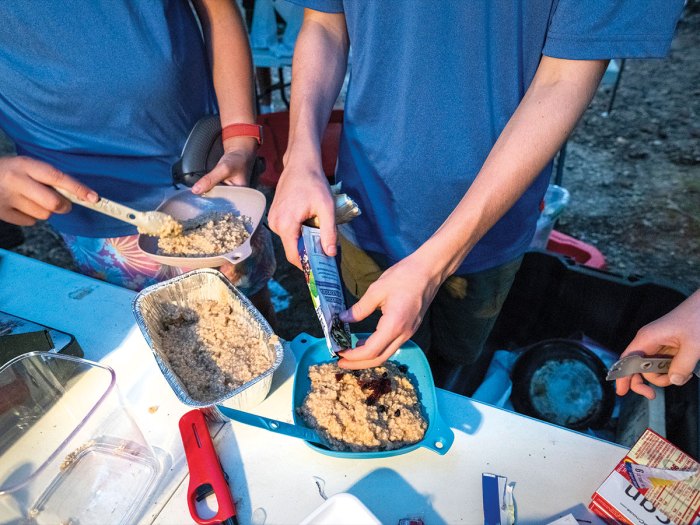
Scouts make a healthy meal of oatmeal with dried blueberries and cranberries.
There were more Scouting lessons to learn back at camp. One patrol discovered a dirty pan in its patrol box. It had been left there for a month since the previous campout. The nasty cooking utensil served as a reminder that Scouts should be courteous and finish their responsibilities.
“Think about the group as a whole,” Thomas says. “Don’t assume the cook had everything handled after dinner.”
That lesson applied to paddling, too: Pay attention to your guide and watch for others on the water — that helps you be a more courteous kayaker. When you live out the Scout Law, it can make a big difference — and Troop 53 noticed it on its ducky outing.
“It was the best campout of the year by far,” Thomas says.
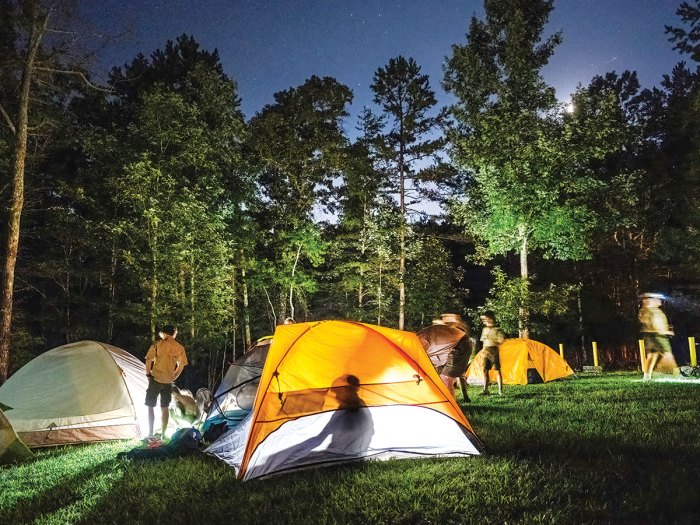
The troop sets up tents at Camp Woodruff.
Read the River
Watching how the water flows can tell you where to safely steer your boat. Rocks, riverbanks and other obstacles disrupt the current, causing eddies, holes and standing waves.
An eddy forms when water is pushed sideways and flows back upstream. They can be calm places where you can rest.
When water goes over a sharp drop and curls backward, it’s called a “hole.” Holes might be ideal places to “surf” against the current.
When fast water hits slower water or when water flows over a submerged object, standing waves appear. These waves are generally safe to paddle over.
However, all these features can turn dangerous depending on how fast the river is flowing.
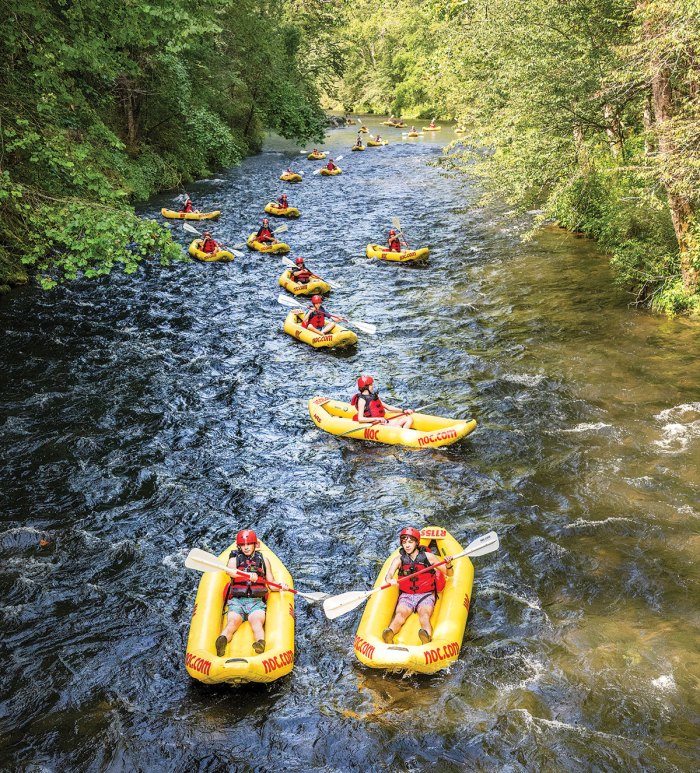
Troop 53 floats down an 8-mile stretch of the river.
I love that this troop is able to go whitewater rafting. Not many troops do fun activities like this. It seems like all of the boys loved it so I am happy for them.